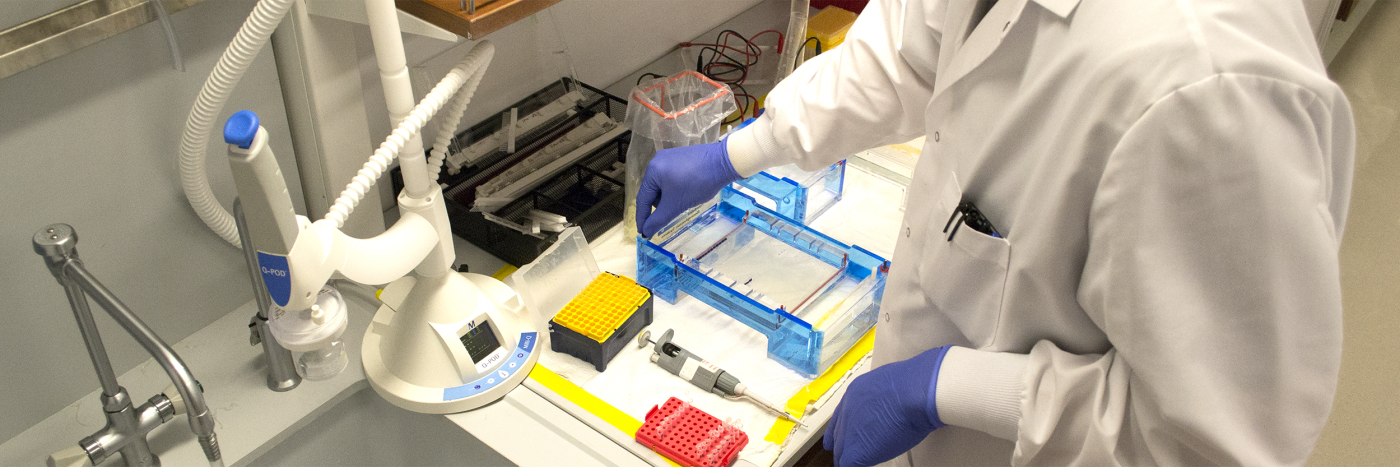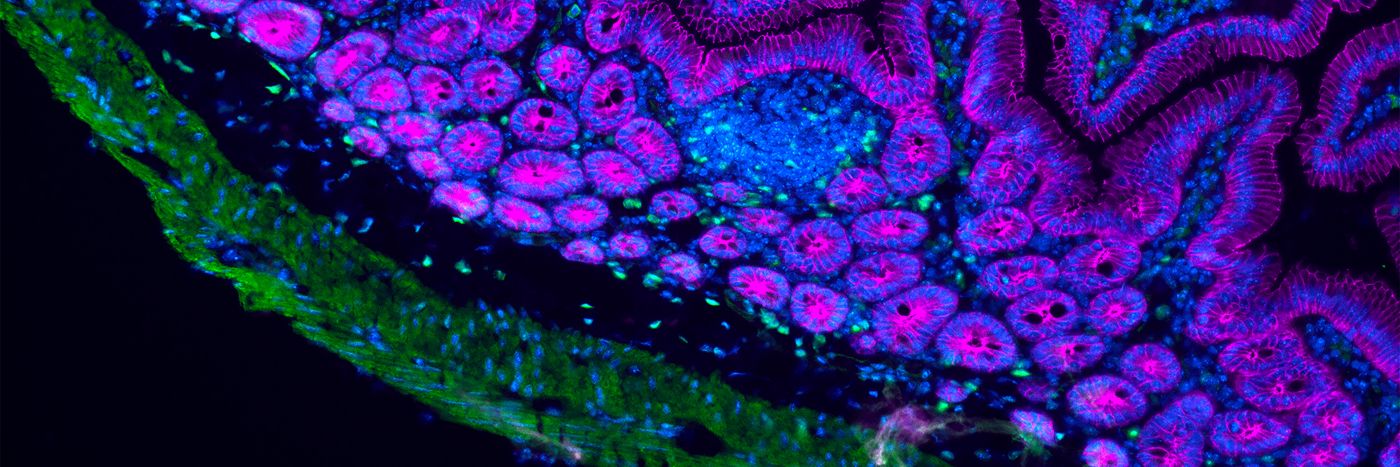Artis Lab
The goals of the Artis lab are to understand the regulatory mechanisms that control immune cell homeostasis at the body’s barrier surfaces. Employing diverse models of microbial colonization, pathogen infection and chronic inflammation, research in the Artis lab is examining how mammalian host genetics and signals derived from commensal microbial communities influence innate and adaptive immune responses in the skin, lung and intestine.
Ongoing studies are examining the influence of host genetic- and environmental-derived signals on the development and functions of innate and adaptive immune cells in the context of health and disease. The findings of these studies offer the potential to identify new therapeutic targets to limit infection, chronic inflammation and autoimmune diseases.
Blander Lab
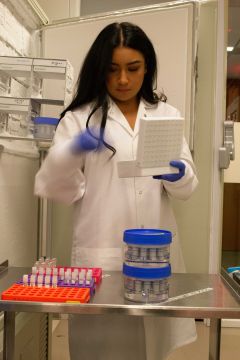
The Blander Lab studies various aspects of innate immunity and inflammation and their application to human disease. Their research is on infection, cancer and chronic inflammation. Their goal is to create treatments and vaccines against disease.
Their work showed that the phagocytosis of infected dying cells generates a dual inflammatory and anti-inflammatory milieu, which instructs CD4 T helper-17 immunity best suited for host defense and tissue repair. The Blander Lab found the potential to prime auto-reactive CD4 T helper-17 cells by phagocytosis of infected apoptotic cells, owing to their delivery of self-antigens alongside microbial antigens to the same phagosome scrambling ‘phagosome autonomy’, a finding which may underlie the well-established epidemiological link between infection and autoimmunity. They delineated the immunosuppressive genetic programs in phagocytes following internalization of apoptotic cells, and found many of the genes comprising these programs to be associated with susceptibility for a chronic inflammatory disease. This finding placed homeostatic apoptosis at the heart of immune tolerance, and illustrated the importance of restoring homeostatic apoptosis in treating chronic inflammatory disease.
Guo Lab
The Guo Lab aims to study the chemistry and biology behind microbe-host interactions in the context of health and disease at the level of molecular mechanisms. Their long-term goal is to understand and reprogram the molecular "language" of host-microbe interactions for potential therapeutic applications. Using a combination of bioinformatics, microbial genetics, metabolomics, chemical biology, and pre-clinical mouse models, their lab focuses on three principles that are changing our understanding of how the human microbiota impact health and disease: (1) new genetic tools for the human microbiota, (2) modulating microbiota small molecules in the host and study their effects on host biology and (3) regulating the metabolic interaction between host and gut microbiota
Iliev Lab
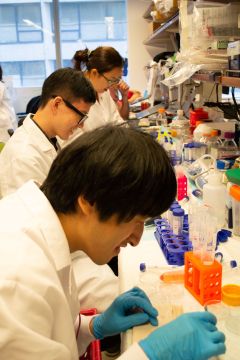
The Iliev Lab studies the interaction between the commensal microbiota and the immune cells at the mucosal surfaces of the intestine. The lab's primary interest is investigating the role of the intestinal fungal communities (mycobiota) in mucosal immunity and their interactions with the bacterial counterpart of the microbiome during intestinal health and disease. They are ultimately looking for approaches to modulate this interaction to influence pathologies.
The Iliev Lab is specifically interested in molecular mechanisms by which fungi interact with gut-resident phagocytes to drive protective or inflammatory immunity. Using in vivo murine models lacking immune arms and antifungal receptors, they study the interaction of commensal fungi with the gut immune system during steady state and during inflammatory states. The Lab's final goal is to understand how this interaction is regulated and provide strategies to manipulate these pathways.
Longman Lab
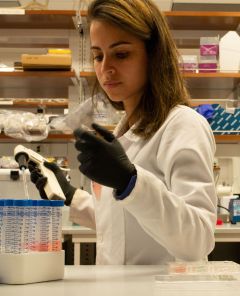
The Longman Lab’s main focus of work is to define the cellular, molecular, and microbial regulation of intestinal barrier immunity and to develop novel diagnostic and therapeutic approaches for medically refractory IBD. Inflammatory bowel disease (IBD) affects over 2 million Americans. While advances in medical therapy have improved the care of IBD patients, many still suffer from refractory disease with significant morbidity. IBD includes two distinct clinical phenotypes called Crohn’s disease and ulcerative colitis. Although genetic polymorphisms correlate with disease susceptibility, environmental triggers including diet and intestinal bacteria are thought to play a central role in disease pathogenesis. While certain intestinal bacteria may act as opportunistic pathogens causing infection and inflammation, our lab and others have shown that microbiota function as a double-edged sword by simultaneously working to maintain homeostasis at mucosal surfaces
Sonnenberg Lab
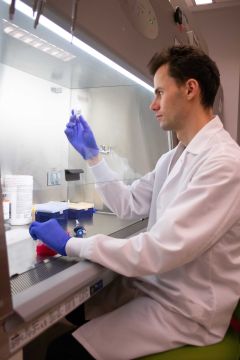
The focus and long-term research goals of the Sonnenberg Lab are to interrogate the mechanisms that maintain a state of health in the human gastrointestinal tract. This is a considerable challenge given the enormous surface area of this organ in which a single layer of intestinal epithelial cells segregates an estimated 100 trillion commensal bacteria from a significant portion of our bodies total immune system. While interactions between mammalian hosts and commensal bacteria are normally beneficial, it is becoming increasingly clear the dysregulated interactions can result in chronic inflammation. Further, emerging studies in patient populations indicate that abnormal host immune responses to commensal bacteria are causally-linked to the pathogenesis and progression of numerous chronic infectious, inflammatory and metabolic diseases, including inflammatory bowel disease (IBD), HIV/AIDS, viral hepatitis, cardiovascular disease, obesity, diabetes and cancer. Ongoing research in the Sonnenberg Lab aims to (1) interrogate the pathways that regulate normally beneficial host interactions with commensal bacteria, (2) determine how these pathways become disrupted in chronic human diseases, and (3) identify novel therapeutic targets to prevent or limit dysregulated host-commensal bacteria relationships in human disease.
Collaborations
Gale and Ira Drukier Institute for Children’s Health

Patient-centered research, scientific collaboration and mentoring the next generation of pediatric clinician-scientists are institutional priorities and are rooted in the work that is done every day. The Drukier Institute’s outstanding group of investigators are dedicated to providing a hopeful outlook for the treatment and care of sick children. The Drukier Institute for Children’s Health, under the leadership of Dr. Virginia Pascual, works to accelerate research discovery from the bedside to the bench and back with the ultimate goal of improving the lives of children. As a pediatric rheumatologist by training with long-standing experience in translational research, Dr. Pascual has dedicated over twenty years to the care of chronically ill children with inflammatory and autoimmune diseases. Dr. Pascual credits the tenacity and courage in the face of disease that these children face as the motivation for her goal to accelerate progress in pediatric research.
Weill Center for Metabolic Health
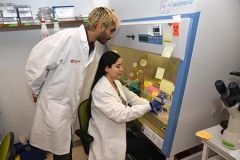
The Joan and Sanford I. Weill Center for Metabolic Health, under the leadership of Dr. Laura Alonso, works towards its goal of better understanding the basic biology and genetics of diabetes, obesity and metabolic disease, and then translating new discoveries into therapeutic approaches. Center investigators use stem cells, cellular and molecular biology, genetics, proteomics, biorepositories and nutritional research to learn about the molecular underpinnings of these diseases, while encouraging behavioral changes to enhance health. A major purpose of the Weill Center for Metabolic Health is to connect our faculty to others with related and complementary interests on campus, across our institutional partner campuses and across the greater NYC region. As such, the Center will be a collaborative hub catalyzing research advances in pursuit of solving important problems in human health.
Weill Cornell Medicine Sandra and Edward Meyer Cancer Center

By delving deeply into research that explores basic biological processes, genetic abnormalities and pathological states, the Center is making unparalleled progress in our understanding of the molecular events that cause cancer and in our ability to translate this knowledge into new approaches for prevention, treatment and cure. We tackle cancer through two basic science and two translational/clinical research programs. The creation of a centralized biobank in partnership with the Englander Institute for Precision Medicine is creating further opportunities for lab and clinical advances. The Sandra and Edward Meyer Cancer Center is a collaborative, multidisciplinary research enterprise located at Weill Cornell Medicine, one of the top-ranked clinical and medical research centers in the country, in affiliation with NewYork-Presbyterian Hospital. The Meyer Cancer Center engages more than 250 basic scientists, pathologists, bioinformaticians, surgeons, oncologists, radiologists and other clinicians, who collaborate with colleagues at Cornell University’s Ithaca campus and other institutions to take fundamental discoveries from bench to bedside, and back again. Our mission is to ensure that patients have access to emerging new therapies in a supportive and caring environment, while training future researchers and recruiting leaders in cancer research and clinical care.
Weill Cornell Medicine Englander Institute for Precision Medicine

The Englander Institute for Precision Medicine (EIPM) is a translational research hub where we use precision medicine tools, such as genetics, genomic sequencing, and clinical data to improve patients’ healthcare. Precision medicine can be used as a modern tool to inform physicians of both the treatment and the prevention of genetic-related diseases. This information derives from both the individual genomic sequencing of the patient’s DNA and from the tumor’s cells sequencing. The insights we get can lead to specific genetic alterations that recur from patient to patient and that may be targetable with existing or new drugs. In growing number of cases, we can prognosticate how a patient might respond to a particular drug or drugs combination.


